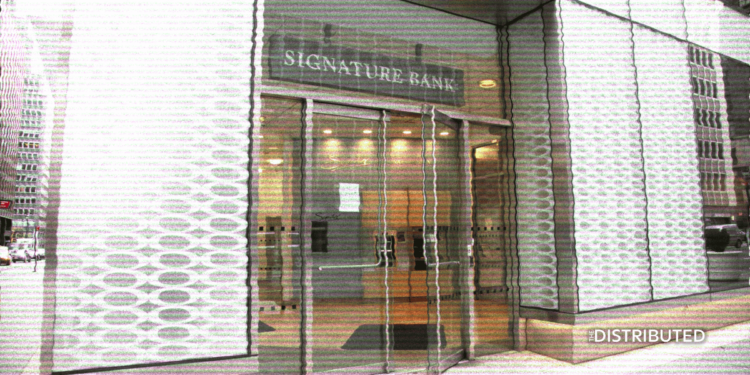Industry-leading cryptocurrency Binance recently disclosed that one of its major banking partners is reducing involvement in the digital asset sector; other traditional financial players also took a move in light of the recent market volatility.
In a statement shared with Bloomberg, Binance said that: ‘‘One of (its) fiat banking partners, Signature Bank, has advised that it will no longer support any of its crypto exchange customers with buying and selling amounts of less than 100,000 USD as of February 1, 2023. As a result, some individual users may not be able to use SWIFT bank transfers to buy or sell crypto with (or) for USD for amounts less than 100,000.’’ SWIFT is a financial messaging network for global payment systems.
See Related: Will Russian Banks Blocked From SWIFT Turn To Crypto?
About 0.01% of Binance’s average monthly users are using Signature bank, according to the company, which added that it is actively seeking an alternative solution. Binance further advised its customers to use their accounts to buy and sell digital assets with credit and debit cards or any supported fiat currency option.
Once Considered a Crypto-Friendly Bank, Signature Is Changing Stance
Last month, Signature Bank, considered one of the most crypto-friendly banks, announced that it was reducing part of its deposits related to cryptocurrencies by up to $10 billion. Per the financial reports, its total crypto deposits as of September were at 23.5% of a total of $103 billion.
One of the New-York based bank’s clients was FTX, which had an estimated 0.1% of its total deposits. Despite the relatively low amount, the collapse of the exchange caused a drop in Signature’s stock by about 20% in November. Besides the volatility concerns, Signature could be taking a step into compliance with the regulators.
On January 5, the Board of Governors of the Federal Reserve System, the Federal Deposit Insurance Corporation, and the Office of the Comptroller of the Currency issued a collective statement concerning digital assets, saying, among other things, that the issuance or holding of digital assets is not in compliance with sound banking practices.



